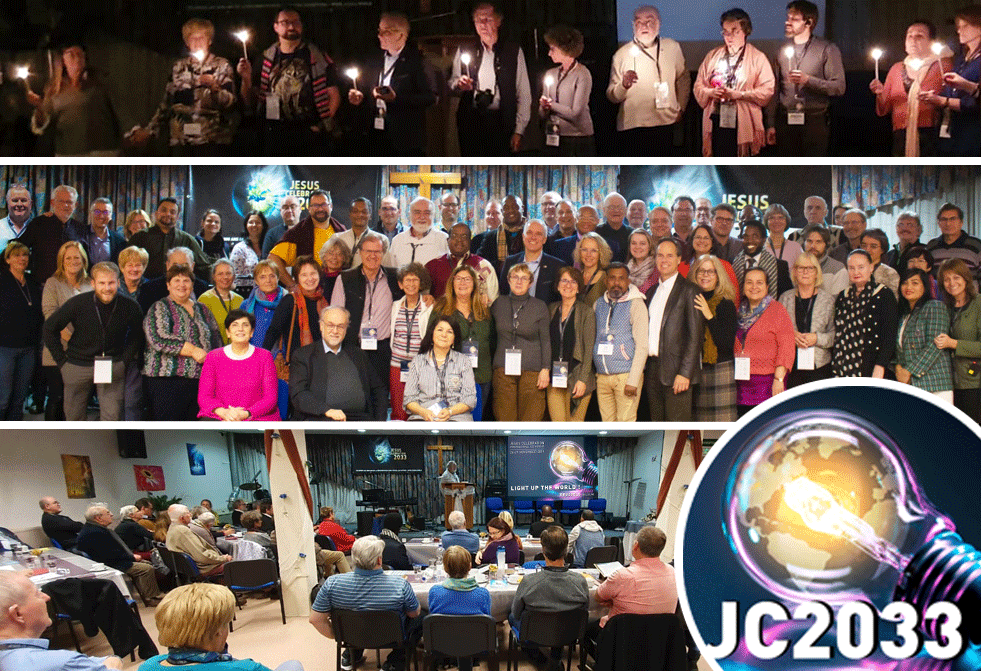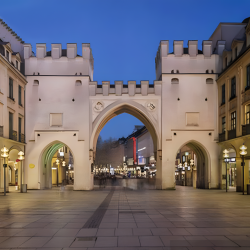I have had some conversations about the JC2033 initiative and will report on it, but first I would like to say that the frequent reference to the resurrection of Jesus struck me.
"The Risen One among us"
François Delloz, from the community of S. Egidio, said at the opening of the meeting: "Tonight, Jesus comes with all our diversity. He tells us, as on Easter evening "peace be with you". The disciples were upset. Whenever we accept to listen to it, the Word moved us".
I meet Pastor Thomas Römer from the Christian Unions whom I visited in Munich. He presents us with a bag of seeds and invites us to sow seven seeds.
Here are a few :
The first, and most important, is above all the trust in the presence of Jesus among us. We must sow it first in ourselves.
The second seed is to follow the new commandment of reciprocal love.
Another is to live friendship. It leads us to walk the path of reconciliation seeking the encounter and dialogue with each other.
I had the joy of seeing Pastor Gottlob Hess, a member of a Protestant movement based in Ottmaring (Vereinigung vom Gemeinsamen Leben), telling me: "the resurrection is the beginning of our salvation and the healing
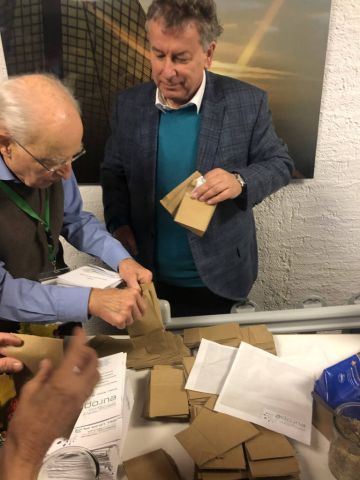 Gottlob Hess and Thomas Roemer taking seed
Gottlob Hess and Thomas Roemer taking seed
The philosopher Herbert Lauenroth invites to acquire the "competence of Emmaus", that is to seek in the Scriptures concerning Christ and to understand everything in the light of his presence among us. This presence is like the "ward of the eye of God". As in the story of the journey of Emmaus, Jesus is the martyr who manifests among us, the precarious prophet crossing borders and the mediator who disappears.
Gérard Testard, head of the French movement Ephesia, says: "Jesus raised us cross the borders. He is in our midst and explains the scriptures to us as on the way to Emmaus. Jesus in our midst is what makes us different from a political movement because he is a person and not an idea. "
A movement from the base
Father Heinrich Walter represents the Schönstatt movement in Together for Europe. At the end of the first evening, we sit around a beer.
"The defining fact is to be together, unlike the year 2000," he says. “The biggest is that from the beginning you thought about contacting all the leaders. Perhaps the time of an ecumenical jubilee has come? "
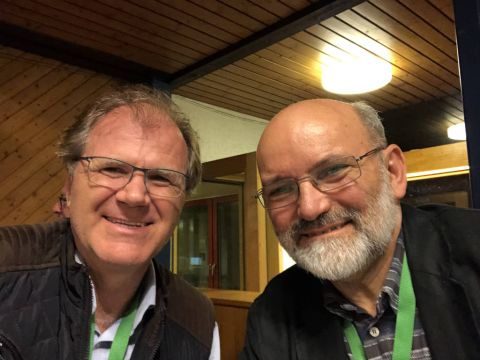 With Heinrich Walter
With Heinrich Walter
His movement works in the long term. But this march towards 2033 is a marvelous process that goes deep and can become a great work of evangelization.
He insists on the importance of friendship. Thanks to it, theological differences are perceived differently. If all do not enter this approach, we must collaborate with those who are open.
For him, this initiative is above all a grassroot movement. He is convinced that church leaders can not decide anything without the consent of the people. This is why he invites us to create a positive spiritual climate around the risen Christ. "Your initiative is really interesting; I have the impression that the Holy Spirit is there," he said as he left us.
Ambassadors of Reconciliation
During the public day in Augsburg, I had the opportunity to meet with Bishop Christian Krause, former President of the Lutheran World Federation. Having learned about my 25-year involvement in the Focolare movement, he tells me how Chiara Lubich's spirituality entered his heart when he met her the day after the signing of the Joint Declaration on Justification in October 1999.
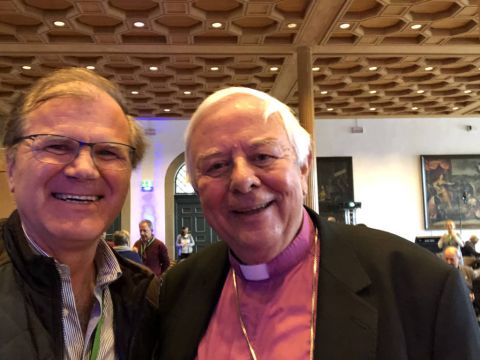 With Christian Krause
With Christian Krause
"The outlines of this spirituality centered on the presence of Christ among us and on unity can be lived by all," he told me.
This happy meeting encouraged me a lot! Moments later he speaks in plenary, emphasizing the importance of reconciliation. The most urgent thing in the Church is to work for "reconciled diversity," he says: "Paul's cry: “in the name of Christ be reconciled to God (2 Cor 5,21)” is the call for today. Communities and movements must launch it everywhere, because they are the ambassadors of reconciliation, which is why they are indispensable ".
It is this word "reconciliation" that he talks about insistently and repeatedly before I leave him after briefly presenting him with the project JC2033.
Martin Hoegger


